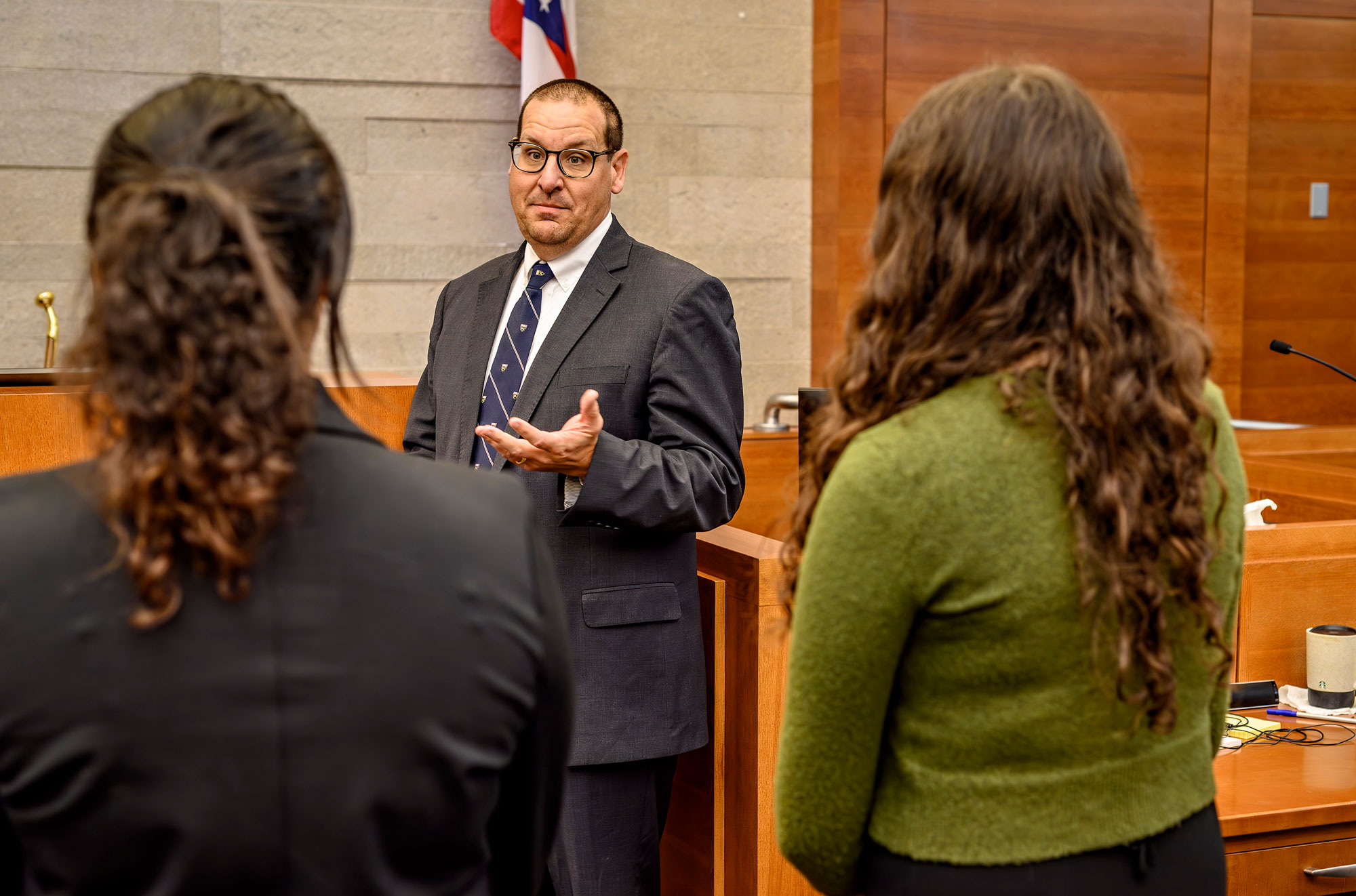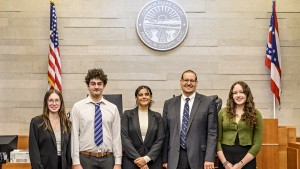Sacha Franjola ’26 has wanted to be a lawyer since she was 8 years old, but there remained so many questions to answer: What type of law? What sort of practice?
“I don’t have any lawyers in my family or my immediate circle, so it’s definitely really valuable to be able to get hands-on experience,” she said.
She got her chance during October break as part of a job shadow program organized by the Career Development Office. Along with nearly 50 other students, she went to Columbus for a chance to see — up close and in person — how different careers work.
In Franjola’s case, it was a day at the Franklin County Court of Common Pleas following John Cornely ’97, an assistant prosecuting attorney. Other students spent time with alumni at Fortune 500 companies such as Nationwide insurance and JPMorgan Chase & Co. as well as civic engines like the Columbus Symphony Orchestra and cancer research centers such as the one at the Ohio State University.
Lori Gastin, CDO assistant director, said October break is a great time for students staying on campus to explore careers through Columbus, one of the fastest growing cities in the country and home to many corporate headquarters.
“This is the beginning of experiential learning,” she said. “Let’s get you out and provide a look at what’s out there before you commit yourself to an internship, let alone full-time employment.”
Job shadows provide an essential and increasingly popular way of understanding different career paths and how they might fit — or not fit — with a student’s interests.
“I want students to have a better understanding of what opportunities are available to them, but also a better understanding of what they respond to,” Gastin said. “It’s not just what’s out there, but what draws them.”
For this free program that is open to any student, the CDO matches applicants with alumni and other partners and arranges transportation to and from Columbus. (There are job shadow opportunities over the longer winter and spring breaks, too, but those are spread all over the country, with a couple of international options as well. While transportation is not provided for these, limited funding is available to financial aid-eligible students.)
Franjola revelled in the insider’s look that she received of life in a courthouse on Thursday. Joined by three other students, she met with judges and attorneys, observed behind-the-scenes negotiations, watched in-court proceedings, and engaged in a question-and-answer session with Cornely about the profession.
“It was really interesting to be able to see how the process works just because it was something very new to me,” said Franjola, who hopes to attend law school after graduation. “I really enjoyed it.”
This was Franjola’s second year participating in the program. Last year, the art history major from New York City shadowed an attorney who practices tax law at a firm in Columbus.
“The CDO definitely makes it easy and does a lot of the heavy lifting for you,” she said, “It’s definitely worth it.”

Cornely, who has a family deeply rooted in Kenyon — including his daughter, who is a member of the Class of 2028 — said he got involved with the program over a decade ago to help provide students with the contacts and experiences that he never had.
“We didn’t have a lot of this when I was in school,” he said.
For David Ross ’26, a psychology major from San Francisco, the opportunity to meet with alumni at JPMorgan Chase & Co. at its Polaris Parkway location in Columbus — the second largest single-tenant office building in the United States, after the Pentagon — was impressive.
He and other current students got advice from a recruiter related to resumes and internships, then heard from a panel of alumni, who went on to visit with students in small groups.
“We really got to ask some questions in a more personal setting,” Ross said.
Still in the exploratory stage of considering what his career could look like, he said the experience opened his eyes to all the ways that he could be involved in a company like Chase despite not having taken what might be considered the typical academic route.
“There were alums there who weren’t econ majors, and I’ve reached out to one of them. I’m going to reach out to the other ones as well, just to talk some more about their story to see how they ended up where they are,” he said. “It was very helpful because (I learned) I don't have to put myself inside of the boxes I thought I needed to.”
